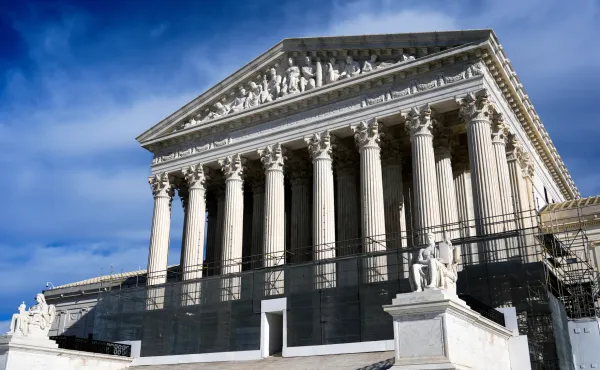The Cage, the Rat, and the Addiction
I only recently came across a well-known study called The Rat Park Experiment. Researchers wanted to understand what leads to addiction. They confined rats in small, barren cages with only food, water, and two drinking spouts—one with pure water and one laced with cocaine. Every single time, the rats chose the cocaine. They drank it until addiction consumed them—and finally, they died.
That’s disturbing enough on its own. But the deeper truth is that addiction isn’t limited to substances. The intoxicants we reach for aren’t only chemical—they can be narratives, fears, hatred, or self-pity. Anything that promises to satisfy our pain while secretly ensuring our destruction.
Someone sat in my office this past week—deeply wounded by the hatred and bitterness of another person who has completely reimagined and rewritten their past through a coherence of bitterness: a blaming narrative so consistent in its delusion, so airtight in its self-justification, and so utterly detached from reality that it borders on the bizarre.
And this hurting individual asked me, “Why do people choose bitterness? Why do they cling to it, even as it drags them down into its vortex?”
When Pain Demands a Story
I told them that when a wound has no clear why, the ache intensifies.
Why did Dad die?
Why did my child fall ill?
Why did COVID take my aunt?
When pain has no explanation, uncertainty becomes unbearable. We crave a culprit, because if we could just know why, we could know whom to fight—and maybe how to keep it from happening again. Pain goes looking for a villain, and bitterness volunteers one.
Scripture warns, “See to it that no root of bitterness springs up and causes trouble, and by it many become defiled”(Heb. 12:15).
It almost sounds alive—a dormant seed always threatening to burst forth into a monstrous tree, spreading roots beneath and branches above until its shadow eclipses the sun itself. Soon, our whole inner world becomes an ecology of bitterness.
In the absence of certainty, bitterness offers the illusion of control. How? It tells us who to blame, who to hate. Once someone identifies a single source of their pain—“you” or “the church”—they feel newly powerful, even purposeful. Subconsciously, they think: If I can defeat them, I can finally win the war I once lost.
The erasure of their target becomes their obsession, a way to reclaim control over what once wounded them.
The Narcotic of Blame
This narrative of blame feels righteous. “I’ll spare others from what hurt me,” they say. But it’s not truth—it’s scapegoating. Truth is far more complex and often far more indicting of self. Yes, some grievances have a kernel of legitimacy, but life is rarely monocausal.
Bitterness thrives where self-examination dies. Honest reflection might reveal that I contributed to my own suffering—and that would mean I must change. But if I’ve given up on my capacity to become more loving, honest, or kind, then the call to change feels like a death sentence. And so the lens tightens until one factor eclipses everything else.
But no single grievance is big enough to explain an entire life. So bitterness injects dishonesty to enlarge itself. It must be fed, exaggerated, rehearsed—until it becomes a sprawling canopy of self-justification.
During a church service, a psychologist in our church recently described mental illness as a narrowing of the mind until a single idea or grievance dominates all thought, and the compulsion to interpret everything that goes wrong through that one lens.
That’s bitterness in full bloom.
Once dishonesty joins bitterness, the result is ruin. You walk a path that proves you both liar and fool. However hard life was before, it becomes immeasurably harder. Friends begin to wonder, Will you do to me what you did to them? Alienation is the end of the pity party that began as a cry for closeness.
Bitterness and blame are as much a narcotic as cocaine was for the rat in its cage. And like every false comfort, they leave the soul emptier than before.
Brokenness and the False Cure
We live in an age of profound brokenness, and our self-prescribed cures are more deadly than the disease. We keep stuffing more distraction into our sickness, yet the fracture refuses to heal.
I told someone recently: modern humanity assumes that people aren’t truly broken—that all we lack is material, either physical or intellectual. So we keep trying to buy or learn our way to wholeness. The whole world has built an economy on that lie, exploiting the pain of the broken and convincing them they can be healed through things instead of connection.
That lie is as old as Eden. The serpent’s promise at the tree of knowledge was this: “You will be like God.” Knowledge became the drug of self-sufficiency, the means to overcome need without dependence. It still is. Today we devour knowledge, stories, and data like addicts—trying to plug the spiritual gaps with digital narcotics.
Why AI Can Never Replace the Human
I don’t believe artificial intelligence will ever replace human beings. That notion assumes what humans offer is merely information. But what we crave is not data—it’s connection.
If you had a perfect machine that could answer all your questions, speak all truth, and never err—you wouldn’t want it. You’d still choose a person: someone who stumbles, hesitates, and feels. Because deep down, you’re not searching for accuracy—you’re searching for people—God’s people. You’re not trying to fill your mind, but your soul.
That’s the beauty of the Biblical vision of the Body of Christ. We are not wholes—we are parts. We become complete only by being joined to others in sacrificial love. Wholeness isn’t found in independence, but in belonging.
The better technology becomes at imitating humans, the more precious true human contact will become—eyes that meet, hands that clasp, voices that harmonize, truth that springs from living spirit rather than coded logic.
Otherwise, we’ll drown beneath mountains of data, under trees of bitterness, beside rivers of narcotics, discovering too late that we are more fragmented than ever.
The Real Lesson of Rat Park
I haven’t yet told you the end of that experiment.
When the rats lived isolated in sterile cages—with no purpose but survival—they chose the drug every time. But when they were placed in an open environment—one with pathways, challenges, purpose, and, above all, companionship—everything changed.
The same two spouts remained: one of cocaine, one of water. This time, they ignored the drug entirely.
It has been said that we should stop calling addiction addiction—and start calling it disconnection.
Made for Connection
We are not rats, and our souls cannot be satisfied with bigger cages or faster treadmills. We are image-bearers of the Creator—made to create, to answer challenge, to love, and to serve. Above all, we were made for connection. We are pieces, not wholes, searching for our missing parts.
One verse from some lyrics I wrote earlier this year that celebrate coming home to Christ and His family:
How could it feel so familiar
Before we ever met?
Like I knew the words of the song
The first time I heard it.
The rhythm had lived in my heart
Before the first note was played.
Only God could compose such beauty—
Weaving harmony
From a thousand broken parts,
Forming symphony
From a thousand yielded hearts.
May God help us lay aside our addictions—of substance, of ideation, of bitterness and blame, of technology and self-reliance. Let us turn from the tree of knowledge, with all its splintered fragments, and reach for the tree of life.
Let us be grafted into the Vine and there abide—a living part of a living organism, an expression of a glory we could never know alone.





